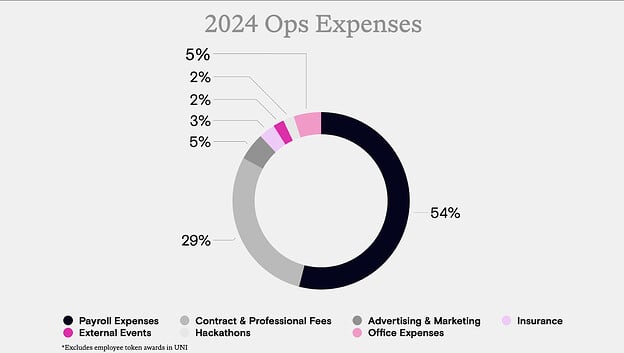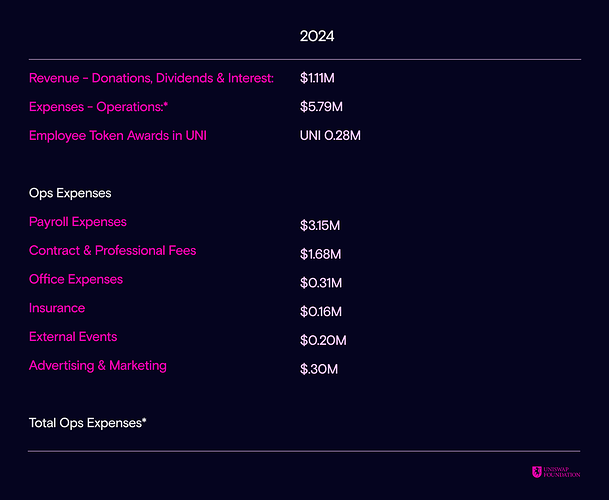Uniswap Foundation Bleeds $4.6M in 2024—When Does ’Building the Future’ Start Turning a Profit?
DeFi’s darling protocol racks up $5.7M in expenses against meager $1.1M revenue—turns out even decentralized giants can’t escape the old ’spend more than you earn’ trap.
Operational costs dwarf income despite UNI’s multi-billion dollar trading volumes. Maybe next year’s roadmap includes ’finding a business model’ alongside those governance proposals.
Another quarter, another reminder that in crypto, the only guaranteed revenue stream is selling the dream to the next buyer.
 Uniswap Foundation’s 2024 ops expenses | Source: Uniswap Foundation
Uniswap Foundation’s 2024 ops expenses | Source: Uniswap Foundation
Advertising and marketing costs totaled roughly $290,000 and were used for things like web design, agency work, and event hosting, the report reads.
“2024 marked a critical inflection point for the Uniswap Foundation, as we laid the groundwork for ecosystem alignment and value capture. Over the past year, Uniswap Foundation initiatives drove the growth and activation of the Uniswap developer community, accelerating the social and governance infrastructure that sustains them.”
Uniswap Foundation’s head of finance Natalia Ra
The Foundation also spent around $174,000 on external events, including travel and attendance at conferences. Office expenses such as software, transaction fees, and internal team events like offsites came in at approximately $116,000. Insurance — mainly directors and officers coverage — was another $290,000, while smaller outlays included nearly $116,000 for hackathons.

By the end of the year, the Foundation still had a healthy reserve: $29.8 million in fiat and stablecoins, plus 0.59 million of Uniswap’s UNI (UNI) tokens, which are set aside to keep things going — grants, day-to-day operations, and team incentives — through 2025.
On the grant front, the Foundation committed $14.8 million in 2024 and actually paid out $9.9 million of that, including $3.1 million in the fourth quarter alone. Developer support was a major focus, with $4.59 million going toward programs that helped onboard over 1,000 new Uniswap developers through Uniday and hackathons around the world.
Other big-ticket items included $2.19 million for research grants, and $1.54 million for governance work, the report reads.

